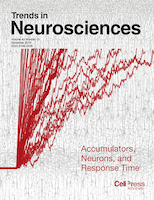
EXPERIMENTAL BRAIN RESEARCH
metrics 2024
Exploring the Frontiers of Brain Function and Disorders
Introduction
EXPERIMENTAL BRAIN RESEARCH is a renowned journal published by SPRINGER, dedicated to advancing understanding in the field of neuroscience. With a history dating back to 1966, this journal offers valuable insights into the mechanisms of brain function and neurological disorders, making it a vital resource for researchers, professionals, and students alike. While it currently holds a Q3 classification in the field of Neuroscience (miscellaneous) and ranks #73 out of 113 in Scopus's General Neuroscience category, it continually contributes to fostering innovative research and collaborative dialogue. The journal is not open access, ensuring that although content is subscription-based, it maintains a high standard of peer review and scholarly rigor. By covering a breadth of topics relevant to both experimental and theoretical aspects of brain research, EXPERIMENTAL BRAIN RESEARCH serves as an essential platform for disseminating cutting-edge discoveries and theories in the dynamic realm of neuroscience.
Metrics 2024
 0.61
0.61 1.70
1.70 1.80
1.80 188
188Metrics History
Rank 2024
Scopus
IF (Web Of Science)
JCI (Web Of Science)
Quartile History
Similar Journals

Multisensory Research
Fostering Collaboration in Multisensory StudiesMultisensory Research is a premier academic journal published by BRILL, dedicated to advancing the fields of cognitive neuroscience, computer vision, and sensory systems. Established in the Netherlands, the journal boasts a diverse scope, exploring the integration of sensory modalities in both experimental and cognitive psychology. With its converged years extending from 2013 to 2024, Multisensory Research has consistently contributed valuable insights, earning a well-regarded position within various quartiles, notably Q2 in Computer Vision and Pattern Recognition and Q2 in Ophthalmology as of 2023. The journal’s rankings reflect its significant impact, with placements such as rank #50 in Ophthalmology and rank #84 in Experimental Psychology, highlighting its relevance to today's interdisciplinary research efforts. Available as an open-access platform, Multisensory Research ensures that innovative research is accessible to a wide audience, making it an essential resource for researchers, professionals, and students alike who are engaged in the dynamic study of multisensory integration.

JOURNAL OF COMPARATIVE NEUROLOGY
Exploring the Depths of Neural DiversityThe Journal of Comparative Neurology, published by Wiley, stands as a cornerstone in the field of neuroscience since its inception in 1911. With an ISSN of 0021-9967 and an E-ISSN of 1096-9861, this esteemed journal spans a comprehensive scope of comparative neuroanatomy, neurophysiology, and neural development, providing critical insights into the intricate workings of nervous systems across species. The journal has earned a prestigious Q2 ranking in the category of general neuroscience for 2023, showcasing its substantial impact, reflected in its Scopus ranking of #47 out of 113 journals in its field. Researchers and professionals examining evolutionary patterns, neural structure functions, and comparative studies will find this journal an invaluable resource. Although it does not provide open access, its rigorous peer-review process ensures the publication of high-quality research that is crucial for advancing knowledge in comparative neurobiology. With a commitment to fostering scholarly exchange, the Journal of Comparative Neurology remains dedicated to exploring the complexities of the nervous system through a comparative lens, making it a vital platform for the global neuroscience community.

CORTEX
Illuminating the Complexities of the Human BrainCORTEX is a premier international journal published by Elsevier Masson, focusing on the cutting-edge areas of cognitive neuroscience, psychology, and neurology. With an impressive impact factor that places it in Q1 quartiles across multiple categories such as Cognitive Neuroscience and Neuropsychology, this journal serves as a vital resource for researchers, clinicians, and students alike. Established in 1964, CORTEX has continued to excel in disseminating high-quality scholarly work, offering insights that significantly enhance our understanding of the brain's functioning and behavior. Although not an open-access publication, it provides various access options to ensure the dissemination of knowledge is as wide-reaching as possible. As the field of cognitive psychology evolves, CORTEX remains at the forefront, fostering an environment for interdisciplinary collaboration and innovation. Researchers seeking to stay engaged with the latest advancements will find CORTEX an indispensable tool for their professional development.

PERCEPTUAL AND MOTOR SKILLS
Exploring the Intricacies of Perception and MotionPERCEPTUAL AND MOTOR SKILLS is a distinguished academic journal published by SAGE Publications Inc, primarily focusing on the disciplines of Experimental and Cognitive Psychology as well as Sensory Systems. With a legacy dating back to its inception in 1962 and continuing through to 2024, this journal serves as a vital resource for researchers and professionals in understanding the complexities of perception and motor processes. Although it currently holds a Q3 status in major categories, it consistently contributes to the discourse of these critical fields, ranking within the 40th and 29th percentiles for its respective categories according to Scopus metrics. While not an open-access journal, PERCEPTUAL AND MOTOR SKILLS remains a reputable platform for disseminating research findings, ensuring that insights on human perception and motor function are accessible to a broader academic audience. With an aim to advance scholarly discussion and foster innovative research, this journal is an essential read for those endeavoring to explore the rich interplay between perceptual mechanics and motor skills.

CEREBRAL CORTEX
Exploring the intricacies of the brain.CEREBRAL CORTEX, published by Oxford University Press Inc, is a premier journal dedicated to advancing the field of neuroscience, specifically focusing on the cellular, molecular, and cognitive aspects of cortical structure and function. With an impressive impact factor that situates it in the top quartile (Q1) of its categories for 2023, this journal holds significant relevance for researchers and professionals interested in the latest discoveries and methodologies in both Cognitive Neuroscience (ranked #31 out of 115) and Cellular and Molecular Neuroscience (ranked #48 out of 97). Operating without an open access model, it ensures rigorous peer review and dissemination of high-quality research from across the globe. Since its inception in 1991, CEREBRAL CORTEX has established itself as a critical platform for educators and inventors, pushing the boundaries of knowledge in understanding brain function and its implications for behavior. Researchers and students alike will find this journal an invaluable resource for both foundational and cutting-edge studies in neuroscience.

TRENDS IN NEUROSCIENCES
Exploring the Frontiers of Brain ResearchTRENDS IN NEUROSCIENCES, published by CELL PRESS, is a leading journal in the field of neuroscience, offering cutting-edge insights and important developments in the rapidly evolving landscape of brain research. With an impressive Impact Factor and ranking in the top quartile (Q1) of the category for Neuroscience (miscellaneous), it is positioned as a vital resource for researchers and professionals seeking to stay abreast of the latest discoveries and trends from 1978 to the present. Specifically ranked #3 out of 113 in General Neuroscience by Scopus, this journal promotes the interdisciplinary exchange of ideas and knowledge, making it an essential platform for students and experienced scholars alike. Although it is not an Open Access journal, its value lies in its rigorous peer-review process and commitment to maintaining the highest standards of academic integrity. By continuing to explore the complexities of neural processes and behavior, TRENDS IN NEUROSCIENCES plays a crucial role in shaping the future of neuroscience research and education.

JOURNAL OF NEUROSCIENCE METHODS
Unveiling New Pathways in Neuroscience ResearchWelcome to the JOURNAL OF NEUROSCIENCE METHODS, a prestigious platform for disseminating innovative methodologies in the interdisciplinary field of neuroscience. Published by Elsevier, this journal has been pivotal since its inception in 1979, covering a diverse range of experimental techniques and methods aimed at advancing our understanding of neural systems and functions. With a commendable impact factor and classified within the Q2 category in Neuroscience (miscellaneous) as of 2023, the journal continues to attract high-quality research from professionals, scholars, and students alike. While maintaining a robust subscription model, it provides unparalleled access to groundbreaking studies, fostering collaboration and knowledge exchange among the global neuroscience community. Join us as we explore and contribute to the evolution of neuroscience methodologies through rigorous research and comprehensive reviews, setting the stage for future discoveries.

BRAIN RESEARCH
Connecting clinical insights with fundamental research.BRAIN RESEARCH is a premier journal published by Elsevier, specializing in the intricate domains of neuroscience, developmental biology, and molecular biology. Established in 1966, this esteemed publication has become a cornerstone for researchers, professionals, and students dedicated to advancing our understanding of brain function and disorders. With an impressive impact factor and a consistent presence in the Q2 quartiles across key categories—such as Developmental Biology, Neurology, and Neuroscience—it stands out as an essential resource for disseminating innovative research and pioneering insights. The journal's scope encompasses both clinical and fundamental studies, fostering a multidisciplinary approach to the complexities of neural systems. Although it is not an open-access journal, BRAIN RESEARCH provides a vital platform for sharing progressive findings that can inspire future studies and contribute significantly to the evolutionary discourse in neuroscience. Based in the Netherlands, at RADARWEG 29, 1043 NX AMSTERDAM, BRAIN RESEARCH continues to shape the landscape of neuroscience research, inviting submissions that explore the latest discoveries and therapeutic strategies.

JOURNAL OF COGNITIVE NEUROSCIENCE
Charting the landscape of cognitive neuroscience.Welcome to the JOURNAL OF COGNITIVE NEUROSCIENCE, a premier publication in the field of cognitive neuroscience, published by the esteemed MIT PRESS. Since its inception in 1989, this journal has been at the forefront of advancing our understanding of the neural mechanisms underlying cognitive processes, boasting an impressive convergence period through 2024. With its Q1 ranking in the 2023 cognitive neuroscience category, it stands out among 115 peers, indicating its critical role in shaping contemporary research. The journal offers a comprehensive array of research articles, reviews, and methodologies aimed at researchers, professionals, and students alike, facilitating the exploration of complex cognitive functions. While not an open-access journal, it provides essential insights and significant contributions to the neuroscience community, making it an invaluable resource for anyone keen on delving into the intricacies of the human brain.

NEUROREPORT
Advancing the frontiers of neuroscience.NEUROREPORT is a distinguished journal in the field of neuroscience, published by Lippincott Williams & Wilkins. With an ISSN of 0959-4965 and an E-ISSN of 1473-558X, the journal has established itself as a vital platform for disseminating innovative research and developments in the dynamic area of neuroscience since its inception in 1990. Currently, it is positioned in the Q3 category of the 2023 Journal Rankings, reflecting its respectable standing within the community of neuroscience professionals, ranked #74 out of 113 in general neuroscience on Scopus, placing it in the 34th percentile. While it operates on a traditional subscription model, NEUROREPORT is committed to fostering knowledge sharing in the realm of neurobiology, neuropharmacology, and cognitive studies among researchers, professionals, and students alike. With its broad scope and commitment to scientific excellence, the journal continues to be a cornerstone for those seeking to stay ahead in the evolving landscape of neurological research.